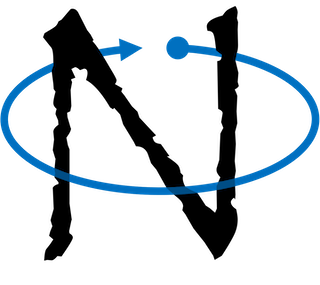






negmas stands for either NEGotiation MultiAgent System or NEGotiations Managed by Agent Simulations
(your pick). The main goal of NegMAS is to advance the state of the art in situated simultaneous negotiations.
Nevertheless, it can; and is being used; for modeling simpler bilateral and multi-lateral negotiations, preference elicitation
, etc.This package was designed to help advance the state-of-art in negotiation research by providing an easy-to-use yet powerful platform for autonomous negotiation targeting situated simultaneous negotiations. It grew out of the NEC-AIST collaborative laboratory project.
By situated negotiations, we mean those for which utility functions are not pre-ordained by fiat but are a natural result of a simulated business-like process.
By simultaneous negotiations, we mean sessions of dependent negotiations for which the utility value of an agreement of one session is affected by what happens in other sessions.
The documentation is available at: documentation (Automatically built versions are available on readthedocs )
This platform was designed with both flexibility and scalability in mind. The key features of the NegMAS package are:
- The public API is decoupled from internal details allowing for scalable implementations of the same interaction protocols.
- Supports agents engaging in multiple concurrent negotiations.
- Provides support for inter-negotiation synchronization either through coupled utility functions or through central controllers.
- Provides sample negotiators that can be used as templates for more complex negotiators.
- Supports both mediated and unmediated negotiations.
- Supports both bilateral and multilateral negotiations.
- Novel negotiation protocols and simulated worlds can be added to the package as easily as adding novel negotiators.
- Allows for non-traditional negotiation scenarios including dynamic entry/exit from the negotiation.
- A large variety of built in utility functions.
- Utility functions can be active dynamic entities which allows the system to model a much wider range of dynamic ufuns compared with existing packages.
- A distributed system with the same interface and industrial-strength implementation is being created allowing agents developed for NegMAS to be seemingly employed in real-world business operations.
To use negmas in a project
import negmasThe package was designed for many uses cases. On one extreme, it can be used by an end user who is interested in running one of the built-in negotiation protocols. On the other extreme, it can be used to develop novel kinds of negotiation agents, negotiation protocols, multi-agent simulations (usually involving situated negotiations), etc.
Using the package for negotiation can be as simple as the following code snippet:
import random
from negmas import SAOMechanism, AspirationNegotiator, MappingUtilityFunction
session = SAOMechanism(outcomes=10, n_steps=100)
negotiators = [AspirationNegotiator(name=f"a{_}") for _ in range(5)]
for negotiator in negotiators:
session.add(
negotiator, preferences=MappingUtilityFunction(lambda x: random.random() * x[0])
)
session.run()In this snippet, we created a mechanism session with an outcome-space of 10 discrete outcomes that would run for 10 steps. Five agents with random utility functions are then created and added to the session. Finally the session is run to completion. The agreement (if any) can then be accessed through the state member of the session. The library provides several analytic and visualization tools to inspect negotiations. See the first tutorial on Running a Negotiation for more details.
Developing a novel negotiator slightly more difficult by is still doable in few lines of code:
from negmas.sao import SAONegotiator
class MyAwsomeNegotiator(SAONegotiator):
def propose(self, state):
"""Your code to create a proposal goes here"""By just implementing propose(), this negotiator is now capable of engaging in alternating offers negotiations. See the documentation of Negotiator and SAONegotiator for a full description of available functionality out of the box.
Developing a novel negotiation protocol is actually even simpler:
from negmas import Mechanism, MechanismState
class MyNovelProtocol(Mechanism):
def __call__(self, state: MechanismState):
"""One round of the protocol"""By implementing the single __call__() function, a new protocol is created. New negotiators can be added to the negotiation using add() and removed using remove(). See the documentation for a full description of Mechanism available functionality out of the box.
The raison d'être for NegMAS is to allow you to develop negotiation agents capable of behaving in realistic business like simulated environments. These simulations are called worlds in NegMAS. Agents interact with each other within these simulated environments trying to maximize some intrinsic utility function of the agent through several possibly simultaneous negotiations.
The situated module provides all that you need to create such worlds. An example can be found in the scml package. This package implements a supply chain management system in which factory managers compete to maximize their profits in a market with only negotiations as the means of securing contracts.
NegMAS tests use scenarios used in ANAC 2010 to ANAC 2018 competitions obtained from the Genius Platform. These domains can be found in the tests/data and notebooks/data folders.
